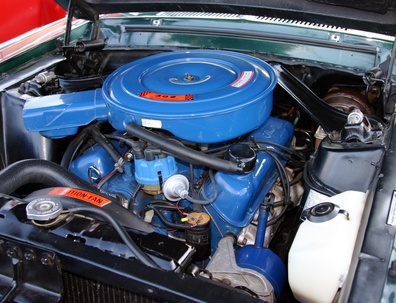
Dieseling is a phenomenon which occurs in gasoline engines when the air-to-fuel mixture in the combustion chamber ignites prematurely due to hot spots in the combustion chamber. When this happens, the engine will continue to run once the engine is cut off. The engine will also emit a loud knocking sound similar to the sound of a diesel engine. If left uncorrected, dieseling can severely damage your engine.
During normal combustion, small amounts of carbon deposits are left inside the combustion chamber. Incorrect air-to-fuel ratios, dirty air and poor engine maintenance can increase the amount of deposits in the combustion chamber. Excessive deposits create hot spots which can ignite the air-to-fuel fuel mixture without a spark from the spark plugs.
An overheating engine can create a dieseling condition. Excessive heat, plus the normal compression process, can ignite the air-to-fuel mixture. This can occur because of cooling system problems, such as a leaking radiator, blocked coolant passages, damaged radiator hoses or a closed thermostat.
Every fuel has an octane rating. This is a measure of how well the fuel will ignite and burn. The standard octane for car internal combustion engines is 87, 89 and 93. Any octane level below 87 can cause a dieseling condition. Low octane fuels cannot handle the heat generated by the engine's compression process. As the air-to-fuel mixture is compressed, the air will heat up. This heat can be enough to ignite the mixture.
Any foreign object which gets into the combustion chamber can be a problem. Metal fragments and other sharp objects can create hotspots or sparks which will ignite the air-to-fuel mixture. This is why keeping your air filter and hoses clean and tight is so important.